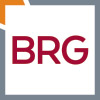14 Sep Ask “What If?” Before Your Next Annual Conference
Are you expecting negative media attention at your annual medical meeting? Probably not. Unfortunately, adverse situations that cause bad press usually don’t come with a lot of warning. While worst-case scenarios may not always happen, being prepared by asking “what if” will enable you to act quickly, respond to key audiences efficiently, minimize fallout and help refocus attention back to the positive aspects of your meeting.
That’s why your communications team needs to be prepared for any scenario when planning their annual meeting media strategy.
“What if” … a natural disaster occurs, food poisoning breaks out at the event, or even indictments for members of your executive leadership team are announced? Or more commonly, “what if” … a media outlet breaks an embargo, attendees tweet hostile comments and feedback about the show, or a negative story about new data released at your conference comes out? Lastly, “what if” … your communications strategy isn’t equipped to help you respond to any of these scenarios?
Here are five actions to make sure you successfully play the “what if” game and win at your next annual meeting:
1. Scenario Plan & Play Out Your Media Response
Think through and prioritize, from most to least likely, what negative scenarios could impact your conference. Your media strategy should explain how your organization will communicate and handle these types of situations.Will you proactively send out a statement or press release, or only send reactively? Who will be the spokesperson? Do you need multiple spokespersons depending on the subject area or inquiry? What will the repercussions be of a negative story? Keeping in mind that timing of a response is very important, answers that address these questions need to be in your plan.
Additionally, outline roles and responsibilities for the communications team to determine who will be charged with assessing the situation and responding accordingly.
2. Put Media Policies & Procedures in Place
Identifying appropriate media policies and procedures at your event will help your communications team know what to do in specific situations. It’s important to clearly outline embargo policies, who is allowed in the media room at press events, if people can take pictures of slides, if filming is allowed in the exhibit hall, etc.Posting these media policies and procedures will create clarity for media and other attendees, help minimize internal confusion and allow your organization to manage any situations in a timely manner.
3. Know Your Key Messages & Positioning
Determine all possible scenarios your organization could face and develop key messages to be used in response. Don’t forget to consider possible questions that media could ask and draft appropriate responses.Strategic messages and a thorough Q&A will make sure your organization’s leadership agrees on key issues before they happen.
4. Identify & Train Spokespersons
Tap the spokesperson that is best suited for each possible situation. The topics a reporter wants to discuss – background on your organization, policy initiatives, financials or new research – will determine who is best suited to speak with them.Be sure to conduct media training before the annual meeting to make certain that these spokespersons are aware of best practices, media interview techniques and the topics they should be prepared to discuss. Categorically, any organization should ensure, via appropriate policies and training, that only authorized spokespersons speak on behalf of it.
5. Monitor, Monitor, Monitor
Monitoring the news and all social media channels is an essential component of both crisis prevention and crisis response.Knowing what’s being said about you on social media, in traditional media and by other stakeholders can allow you to catch a negative situation in a timely manner and address it appropriately.






